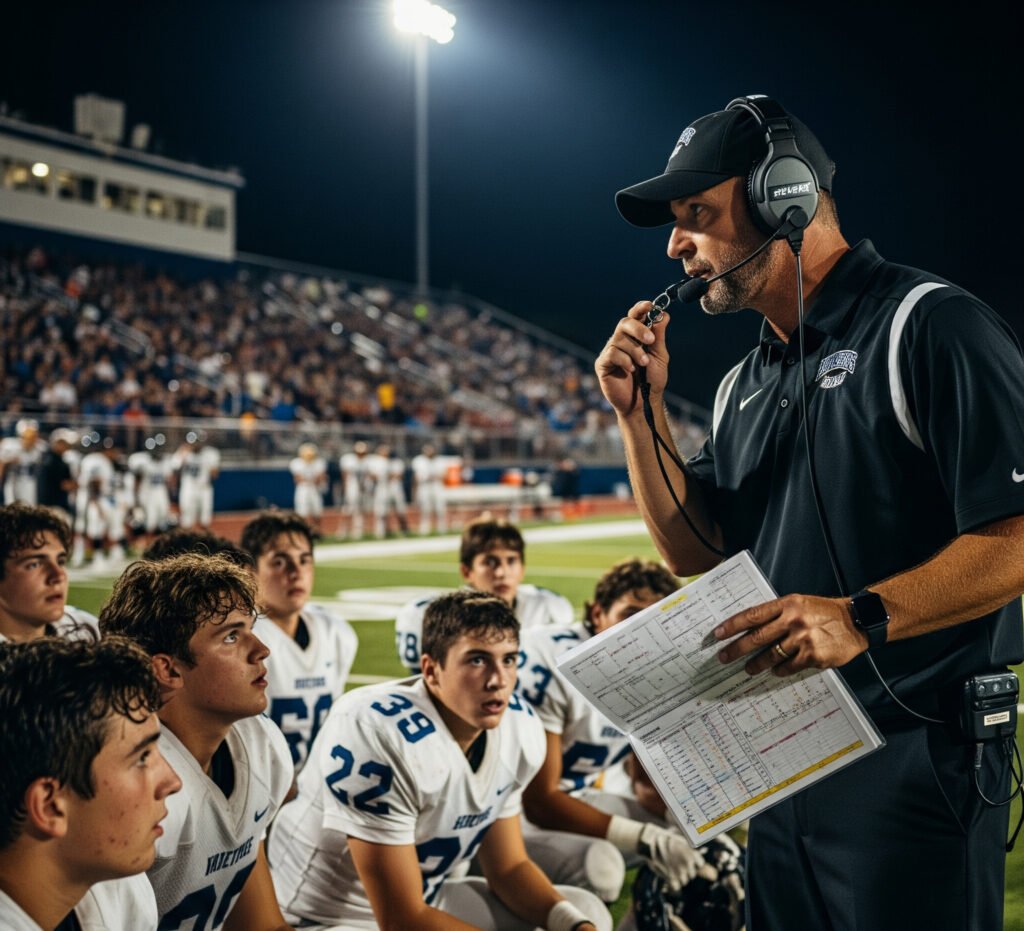Introduction
When it comes to hiring the right leader for a football program, asking the right question for a high school head football coach interview is essential. A head coach isn’t just responsible for calling plays on Friday nights—they shape young athletes’ character, manage assistant coaches, communicate with parents, and represent the school in the community.
Whether you’re a school administrator, athletic director, sports journalist, or even a parent wanting to know more, preparing thoughtful questions ensures you uncover the candidate’s coaching philosophy, leadership style, and vision for the program.
In this article, we’ll walk through the key questions to ask in a high school head football coach interview, why they matter, and how to use them to find the perfect fit for your team.
Why Interview Questions Matter in High School Football
The role of a high school football coach goes far beyond X’s and O’s. The coach becomes a mentor, teacher, and motivator. Asking strong interview questions helps reveal:
Leadership qualities: How do they handle challenges, conflicts, and setbacks?
Player development: Do they focus only on winning, or do they also invest in personal growth?
Community impact: How will they involve families, teachers, and alumni?
Program sustainability: Do they have a long-term vision for the football program?
Top Questions for a High School Head Football Coach Interview
Here are some of the best questions you can ask, broken down by category.
1. Coaching Philosophy and Vision
What is your overall philosophy of coaching high school football?
How do you define success for your players, both on and off the field?
What goals do you have for our football program in the first year and long-term?
2. Player Development and Academics
How do you balance academics with athletics?
What strategies do you use to motivate struggling students to stay eligible and engaged?
How do you develop leadership skills among your athletes?
3. Game Strategy and Preparation
How do you prepare your team for game day, both mentally and physically?
What’s your approach to designing offensive and defensive schemes?
Can you share a time you adjusted your strategy mid-game to achieve a win?
4. Team Management and Staff
How do you build relationships with assistant coaches and coordinators?
What’s your approach to conflict resolution within the team?
How do you ensure every player, from starters to backups, feels valued?
5. Community and Parental Involvement
How do you communicate with parents about their child’s role on the team?
What’s your approach to engaging alumni and local businesses in supporting the program?
How do you foster school spirit and community pride through football?
6. Health, Safety, and Discipline
How do you ensure player safety during practices and games?
What’s your stance on concussion protocols and injury prevention?
How do you handle disciplinary issues, both on and off the field?
7. Recruiting and Advancement
How do you help student-athletes who want to play college football?
What connections do you maintain with recruiters and college coaches?
What role do highlight reels, stats, and film play in your support for athletes?
The Most Important Question to Ask
If you only had time to ask one question for a high school head football coach interview, it should be:
“How will you use this football program to help shape young athletes into successful students, leaders, and community members?”
This single question reveals a candidate’s priorities, character, and leadership philosophy. It goes beyond the scoreboard and uncovers how the coach views their role as an educator and mentor.
Tips for Conducting a Successful Interview
Do Your Research – Review the candidate’s background, coaching record, and references.
Create a Comfortable Setting – Coaches often open up more in a conversational interview style.
Ask Scenario-Based Questions – For example: “How would you handle a star player breaking team rules?”
Involve Stakeholders – Include administrators, teachers, and even student-athletes in the process.
Listen for Values – Wins and losses matter, but integrity, safety, and mentorship should shine through.
Common Mistakes to Avoid
Focusing only on winning record: A coach with trophies but no leadership qualities may not be the right fit.
Overlooking character: Remember, coaches become role models for hundreds of students.
Rushing the process: Take time to ensure the candidate aligns with school values and community expectations.
Why the Right Coach Matters
A high school football coach has a lasting impact far beyond the field. The right coach can:
Inspire students to pursue higher education.
Instill discipline, teamwork, and perseverance.
Create a football program that strengthens community pride.
Hiring the wrong coach, however, can harm school spirit, safety, and even academics. That’s why asking the right interview questions is critical.
Conclusion
Asking the right question for a high school head football coach interview can make all the difference in hiring a leader who shapes not only a winning team but also a positive, values-driven program. From exploring coaching philosophy and game strategy to addressing academics and community involvement, the goal is to uncover a coach’s true character and vision.
The best head coaches are more than play-callers—they’re educators, mentors, and leaders who prepare athletes for life.
FAQs About High School Head Football Coach Interviews
Q1: What’s the most important question to ask a head football coach?
A: Ask how they plan to shape athletes into successful students, leaders, and community members.
Q2: How long should a coach interview last?
A: Typically 45–60 minutes, but longer if multiple stakeholders are involved.
Q3: Should parents be included in the interview process?
A: Not directly, but schools should consider community input and feedback.
Q4: What red flags should you look for in interviews?
A: Lack of focus on academics, poor communication skills, or a “win-at-all-costs” mentality.
Q5: How do schools prepare for coach interviews?
A: By defining program goals, creating structured questions, and involving athletic directors and administrators.

